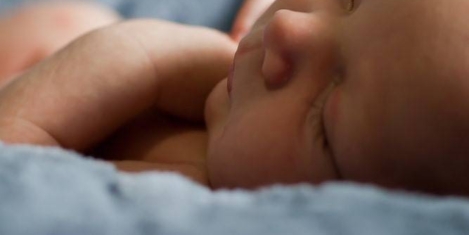To provide the best experiences, we use technologies like cookies to store and/or access device information. Consenting to these technologies will allow us to process data such as browsing behaviour or unique IDs on this site. Not consenting or withdrawing consent, may adversely affect certain features and functions.
The technical storage or access is strictly necessary for the legitimate purpose of enabling the use of a specific service explicitly requested by the subscriber or user, or for the sole purpose of carrying out the transmission of a communication over an electronic communications network.
The technical storage or access is necessary for the legitimate purpose of storing preferences that are not requested by the subscriber or user.
The technical storage or access that is used exclusively for statistical purposes.
The technical storage or access that is used exclusively for anonymous statistical purposes. Without a subpoena, voluntary compliance on the part of your Internet Service Provider, or additional records from a third party, information stored or retrieved for this purpose alone cannot usually be used to identify you.
The technical storage or access is required to create user profiles to send advertising, or to track the user on a website or across several websites for similar marketing purposes.
 Despite the introduction of shared parental leave rights, more than half of UK adults still think that women be the primary carers of babies and children, according to the latest British Social Attitudes Survey. Despite this, there has been a notable shift in attitudes over the last seven years, according to the researchers from the National Centre for Social Research. (more…)
Despite the introduction of shared parental leave rights, more than half of UK adults still think that women be the primary carers of babies and children, according to the latest British Social Attitudes Survey. Despite this, there has been a notable shift in attitudes over the last seven years, according to the researchers from the National Centre for Social Research. (more…)






 Nearly three quarter (70 percent) of employment law experts have seen an increase in women claiming they were fired when on maternity leave; the use of ‘gagging orders’ following pregnancy and maternity related disputes and an increase in men claiming harassment by their employer for taking paternity leave.
Nearly three quarter (70 percent) of employment law experts have seen an increase in women claiming they were fired when on maternity leave; the use of ‘gagging orders’ following pregnancy and maternity related disputes and an increase in men claiming harassment by their employer for taking paternity leave.












 All the chatter around the growth of flexible working might suggest it has now become the norm, but an academic paper refutes that view by revealing a third of all UK workers believe those who work flexibly create more work for others. A similar proportion believe their career will suffer if they use flexible working arrangements. This is the main finding from Dr Heejung Chung from the University of Kent who set out to analyse data from the 2011 Work-Life Balance Survey conducted by the government. Specifically, she wanted to examine whether stigma against flexible workers exists, who is most likely to hold such beliefs and who is most likely to suffer from it. The research also found that the majority of respondents that held negative views against flexible workers were male, while women and especially mothers were the ones who were most likely to suffer from such stereotypes.
All the chatter around the growth of flexible working might suggest it has now become the norm, but an academic paper refutes that view by revealing a third of all UK workers believe those who work flexibly create more work for others. A similar proportion believe their career will suffer if they use flexible working arrangements. This is the main finding from Dr Heejung Chung from the University of Kent who set out to analyse data from the 2011 Work-Life Balance Survey conducted by the government. Specifically, she wanted to examine whether stigma against flexible workers exists, who is most likely to hold such beliefs and who is most likely to suffer from it. The research also found that the majority of respondents that held negative views against flexible workers were male, while women and especially mothers were the ones who were most likely to suffer from such stereotypes.







July 5, 2019
Closing the gender pay gap needs more than final ideas of Theresa May
by Sarah King • Comment, Workplace